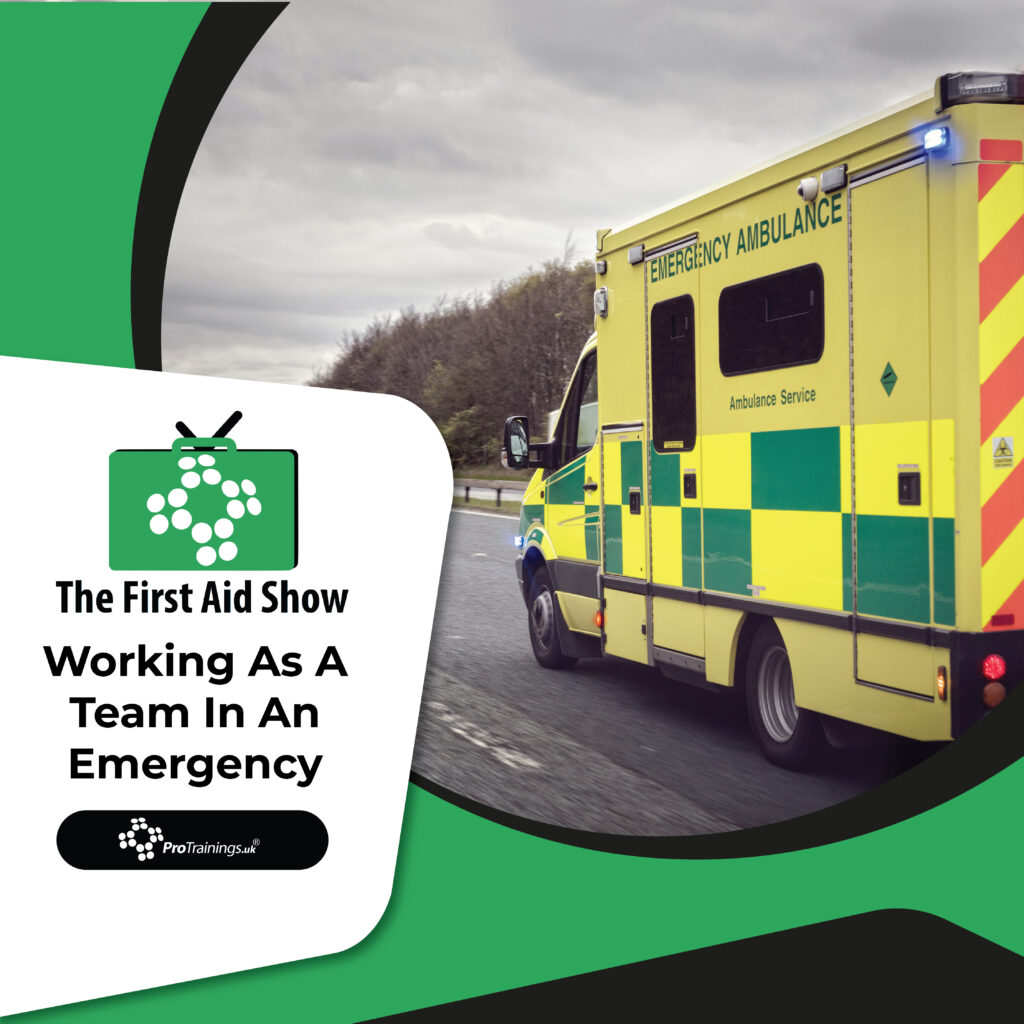Effective Teamwork During Emergencies
Welcome to this edition of the First Aid Show. Today, we explore the transition from acting as a lone first aider to working as a team in an emergency. This adjustment is crucial for first responders who often find themselves part of a dynamic team during critical incidents.
The Dynamics of Emergency Teamwork
In emergency medical services, whether on the ground or from air ambulances, teamwork is paramount. Responders often find themselves paired with new colleagues, yet effective collaboration is expected regardless of familiarity.
Assigning Roles on the Scene
Upon arriving at an emergency scene, it’s essential to quickly assign roles within the team. Each role is critical, whether it involves direct patient care or logistical support such as gathering medical history or preparing equipment. Understanding that no role is less important than another is key to working as a team in an emergency.
Communication and Leadership
Clear communication and leadership are vital:
- Decision Making: Decide who will lead and who will follow. The leader is not always the most experienced or senior team member but is the one best suited to guide the response at that moment.
- Adaptability: Be prepared to switch roles if the situation demands. Flexibility can significantly enhance the effectiveness of emergency care.
Overcoming Challenges in Team Dynamics
Even in well-coordinated teams, challenges can arise:
- If a team member is struggling, it’s crucial to recognize this quickly and adjust roles to support the overall goal of patient care.
- Each team member must be ready to voice observations and concerns, enhancing the team’s ability to adapt to evolving situations.
Conclusion: The Importance of Teamwork in Emergency Care
Mastering the art of working as a team in an emergency is crucial for providing effective and timely medical assistance. As first responders, the ability to operate seamlessly within a team not only improves outcomes for patients but also enhances each team member’s capacity to handle high-pressure situations. Remember, in emergency care, teamwork isn’t just beneficial; it’s essential.


